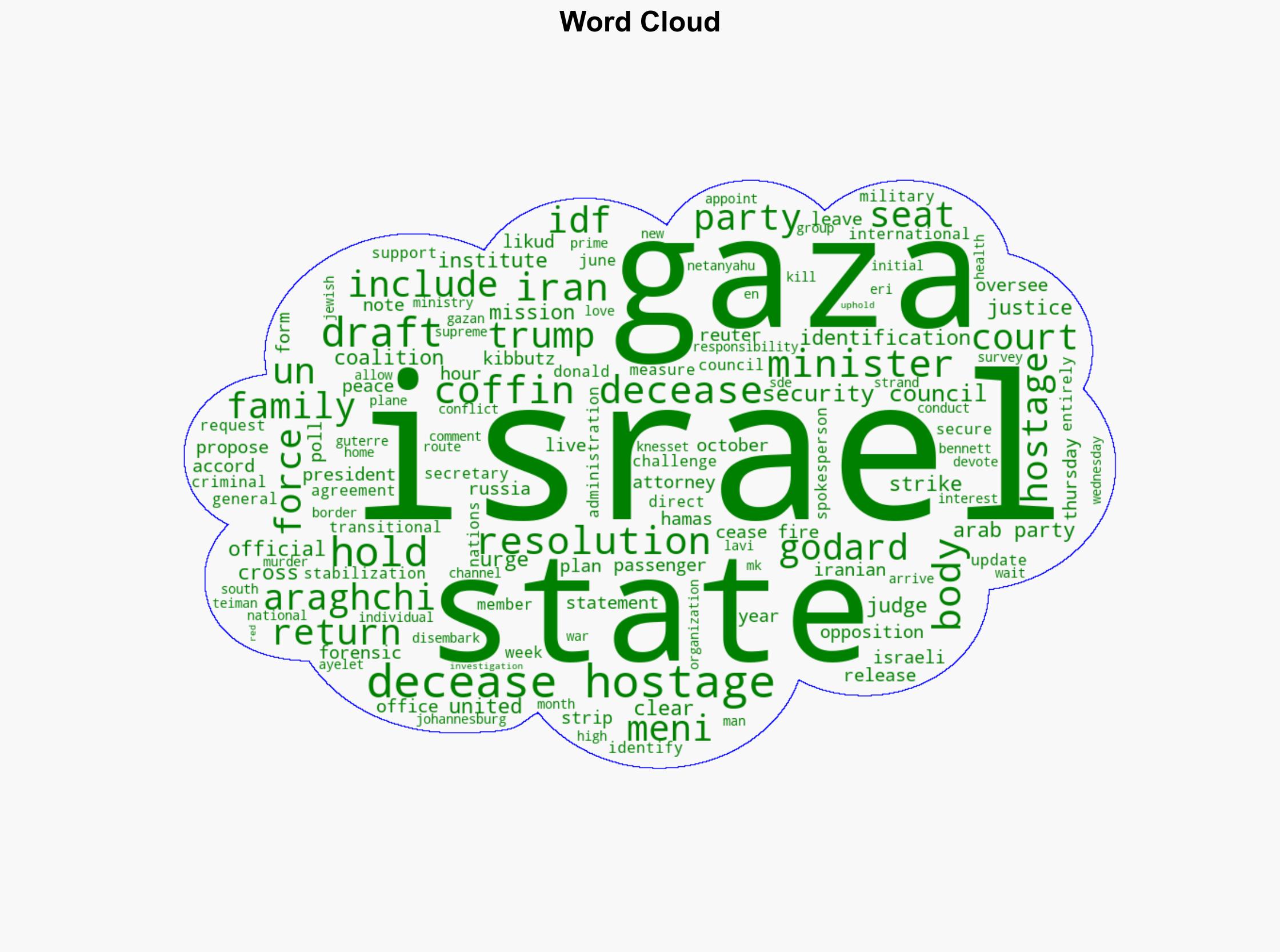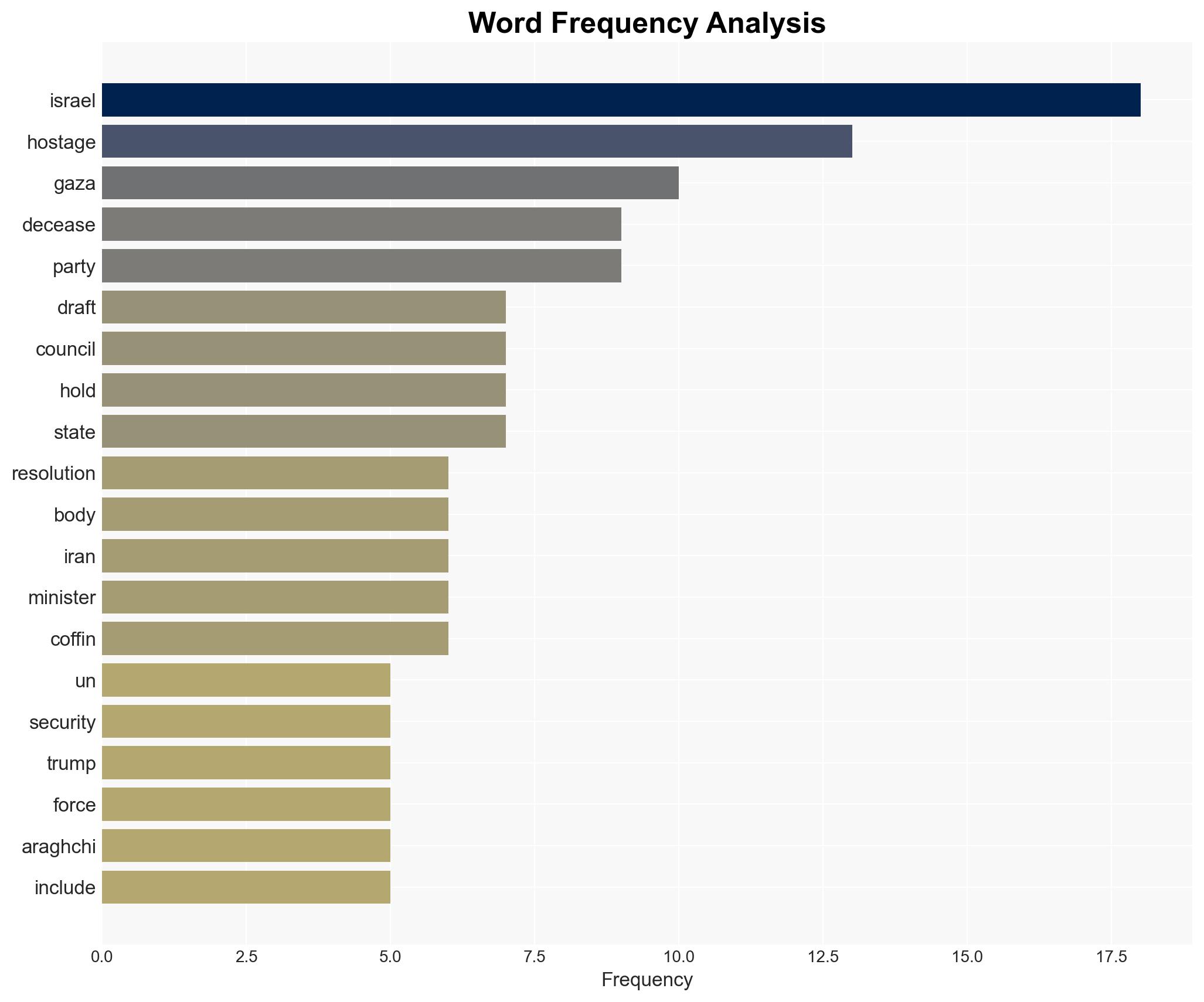Rubio warns that settler violence in West Bank could hurt Gaza peace efforts – Haaretz
Published on: 2025-11-13
AI-powered OSINT brief from verified open sources. Automated NLP signal extraction with human verification. See our Methodology and Why WorldWideWatchers.
Intelligence Report: Rubio warns that settler violence in West Bank could hurt Gaza peace efforts – Haaretz
1. BLUF (Bottom Line Up Front)
The strategic judgment is that increased settler violence in the West Bank poses a significant risk to the stability of Gaza peace efforts, with a moderate confidence level. The most supported hypothesis is that settler violence will exacerbate tensions, undermining international peace initiatives, including those proposed by Russia and the UN. Recommended action includes diplomatic engagement to de-escalate tensions and reinforce international peace efforts.
2. Competing Hypotheses
Hypothesis 1: Settler violence in the West Bank will significantly undermine Gaza peace efforts by increasing regional tensions and reducing the willingness of Palestinian factions to engage in peace talks.
Hypothesis 2: Settler violence will have a limited impact on Gaza peace efforts as international diplomatic initiatives, such as the Russian UN resolution, will continue to progress independently of regional tensions.
Hypothesis 1 is more likely due to historical patterns where increased violence in one area of the Israeli-Palestinian conflict often leads to broader regional instability. The interconnectedness of Palestinian territories means that actions in the West Bank can directly influence the situation in Gaza.
3. Key Assumptions and Red Flags
Assumptions: It is assumed that Palestinian factions will react negatively to increased settler violence, and that international diplomatic efforts are sensitive to regional stability.
Red Flags: Potential bias in assessing the impact of settler violence due to the complexity of regional dynamics. Deception indicators include potential misinformation from involved parties to sway international opinion.
4. Implications and Strategic Risks
The primary implication is the risk of escalating violence, which could derail current peace initiatives. Politically, increased tensions may lead to a hardening of positions among Palestinian factions and Israeli authorities. Economically, instability could deter investment and aid in the region. Informationally, narratives around settler violence could be used to justify further aggression by either side.
5. Recommendations and Outlook
- Engage in diplomatic efforts to de-escalate tensions in the West Bank and reinforce international peace initiatives.
- Monitor settler activities and Palestinian responses to anticipate potential escalations.
- Best-case scenario: Successful international mediation leads to a reduction in violence and progress in Gaza peace talks.
- Worst-case scenario: Escalation of violence leads to a breakdown of peace efforts and increased regional instability.
- Most-likely scenario: Continued low-level violence with intermittent diplomatic progress, requiring sustained international engagement.
6. Key Individuals and Entities
Marco Rubio, Russian UN Mission, UN Security Council, Abbas Araghchi, President Donald Trump, Israeli and Palestinian factions.
7. Thematic Tags
Middle East, Israeli-Palestinian Conflict, International Diplomacy, Regional Stability
Structured Analytic Techniques Applied
- Causal Layered Analysis (CLA): Analyze events across surface happenings, systems, worldviews, and myths.
- Cross-Impact Simulation: Model ripple effects across neighboring states, conflicts, or economic dependencies.
- Scenario Generation: Explore divergent futures under varying assumptions to identify plausible paths.
- Narrative Pattern Analysis: Deconstruct and track propaganda or influence narratives.
Explore more:
Regional Focus Briefs ·
Daily Summary ·
Methodology





